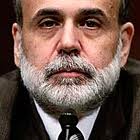
But if they haven't had the opportunity or taken the time to get to know you, there's no way they would know about these unique and attractive qualities of yours, and as a result, they are likely to see you as pretty much like any other loan officer. Which is why everybody is always asking you about your "rates".
This is a problem for you, because if you don't stand out in the crowd, you'll never get the chance to show them all the really important reasons why you would be the "right" loan officer for a potential client or Realtor partner.
Most loan originators try to solve this problem by using e-mail marketing, developing a website, and/or using social media or other types of marketing in order to build name recognition and a reputation in their local markets. The various technologies involved can seem somewhat daunting at first, but for most of us, the learning curve is not that difficult. So you can set up an e-mail marketing account, a website, Facebook and LinkedIn and Twitter accounts, and so forth, with a little bit of time and not too much trouble.
The hard part is coming up with things to say that people would actually want to read, or listen to, or watch.
Many loan officers would rather spend the afternoon in a dentist's chair than sitting in front of their computer writing something for other people to read. Once you get something down on paper (or pixels), your Inner Critic takes one look at it and tells you it's complete rubbish.
Other loan officers don't even get that far – writing anything, let alone something that would be informative, useful, and interesting, just seems like way too much trouble.
Whichever group you happen to belong to, you might end up buying canned content from one of the many providers out there -- people who know that there are a lot of you will pay good money to get something – anything – that you can use to feed your e-mail campaigns, website pages and blogs, and so forth.
The only problem with this approach is that it brings you right back to the problem you started with: you started with a desire to show potential clients and referral sources that you have unique qualities that would make you a better choice than any of your competitors. But now, because you're using the same content everyone else is using, you still sound just like everyone else.
And you have blown your chance to distinguish yourself in your market as someone unique and worth getting to know.
How to Solve This Problem
As you know, I coach mortgage professionals exclusively. I also limit the number of people I work with to no more than 20 full-time clients at a time. Among other services, I help my loan originator clients create their own unique content that they can use in their local markets to reach out to consumer (home buyer) leads, existing clients, Realtors, and other referral sources. We start with material I have written for this purpose, and then we work to personalize it for you and your market. And because I never work with more than 20 clients at a time, you can be confident that the content we create together will not only be interesting to your readers, it will be new to them.
If you'd like to find out more about how I can help you build your reputation in your local market, and if you've never had a free coaching session with me, please go here and request a free, personal, one-hour coaching session at no obligation.
In future posts, I will be sharing some of the things I've learned about creating content that is interesting, useful, and builds your reputation as a trusted expert in your field. Stay tuned.






 RSS Feed
RSS Feed